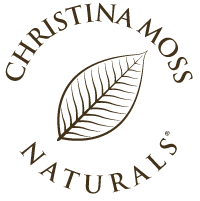I’d like to take a minute to pay respect to a part of the body that’s often overlooked: your nose. Scientists estimate that the nose can distinguish between over 1 trillion different odors, making it the most sensitive organ in the body, by far. Scent and memory are strongly combined, so with a single sniff, your nose can transport you to some of the best times in your life. Your sense of smell is truly amazing.
So why abuse it with artificial fragrances?
Why I Refuse to Use Artificial Fragrances in My Products
Artificial Fragrances Are Scary
In theory, artificial fragrances give cosmetics manufacturers the ability to imbue their products with a variety of scents, easily and inexpensively. In reality, artificial fragrances represent an enormous loophole in personal care regulation. Over 3,000 chemicals can be classified with a single word “fragrance.”
The result? Thousands of potentially toxic ingredients are being absorbed, ingested, and inhaled with no one being the wiser. I don’t know about you, but that smells fishy to me.
So what is a “fragrance,” anyway? Well, as a blanket term that covers more than 3,000 chemicals, a fragrance can be a lot of different things. A 1986 report from the National Academy of Sciences found that 95% of the chemicals used to create synthetic fragrances are derived from the same stuff you use to fuel your car – crude oil.
These chemicals include benzene derivatives, aldehydes, toluene, and phthalates… ingredients that are linked to cancer, birth defects, allergic reactions, and nervous system disorders.
In addition, artificial fragrances are designed to be long-lasting, so they stick around for a while on your clothing and skin. They also linger in the air. A study conducted in Norway found artificial fragrance compounds in outdoor air, even in remote locations, proving just how far these chemicals can go.
The last scary thing about artificial fragrances? They are almost everywhere. Look at your shampoos, conditioners, and moisturizers. Then examine your soaps, deodorants, and body washes. Even your cleaning products and candles are not safe.
With so many issues associated with artificial fragrances, I admit I was a little baffled about why they are so common. After doing more research, however, I realized the unflattering truth: They are cheap. Any beauty business that’s more interested in making a profit than providing their customers with quality can use fragrances to give the impression of a higher-end product than what they are really providing.
How You Can Avoid Chemical Fragrances
As ubiquitous and pervasive as they are, you can do a lot to avoid toxic chemical fragrances. Your biggest assets are your eyes and your power of choice. Read ingredients labels carefully and avoid any products that list “fragrance,” “perfume,” “parfum,” or “cologne.”
Choose to buy organic and natural products – they don’t rely on artificial fragrances. Select products with organic hydrosols, essential oils and extracts.
Another caution is about your sunscreen. SPF (Sun Protection Factor) cosmetic products are formulated to shield the skin from the harmful effects of ultraviolet (UV) radiation. There are two basic types of ingredients: organic filters such as avobenzone and octocrylene that absorb UV radiation and convert it into harmless heat, and inorganic filters with mineral-based ingredients like zinc oxide and titanium dioxide that reflect, scatter and absorb UV rays. Others are benzene (the cause of many beauty product recalls, particularly harmful as many active and inactive ingredients can increase permeation of the skin) and butane (used as a propellant in spray sunscreens). Best, of course, is to opt for natural ingredients instead. 1,2
It probably goes without saying that I would never use artificial fragrances in my products. Instead, I use natural ingredients that provide light, enticing fragrances on their own – no need for added chemicals.
What are your thoughts on artificial fragrances? Have you caught them trying to sneak into any products in your home? Tell me about them in the comments below!
– Christina Moss
Sources
1 National Center for Biotechnology Information 5/23/2017
The Science of the Total Environment
Occurrence of and dermal exposure to benzene, toluene and styrene in sunscreen products marketed in the United States
https://pmc.ncbi.nlm.nih.gov/articles/PMC10330564/
2 The Washington Post 2/1/2023
What is benzene, and why does it keep causing beauty product recall?
https://www.washingtonpost.com/wellness/2023/02/01/benzene-aerosol-recalls-sunscreen-shampoo/
